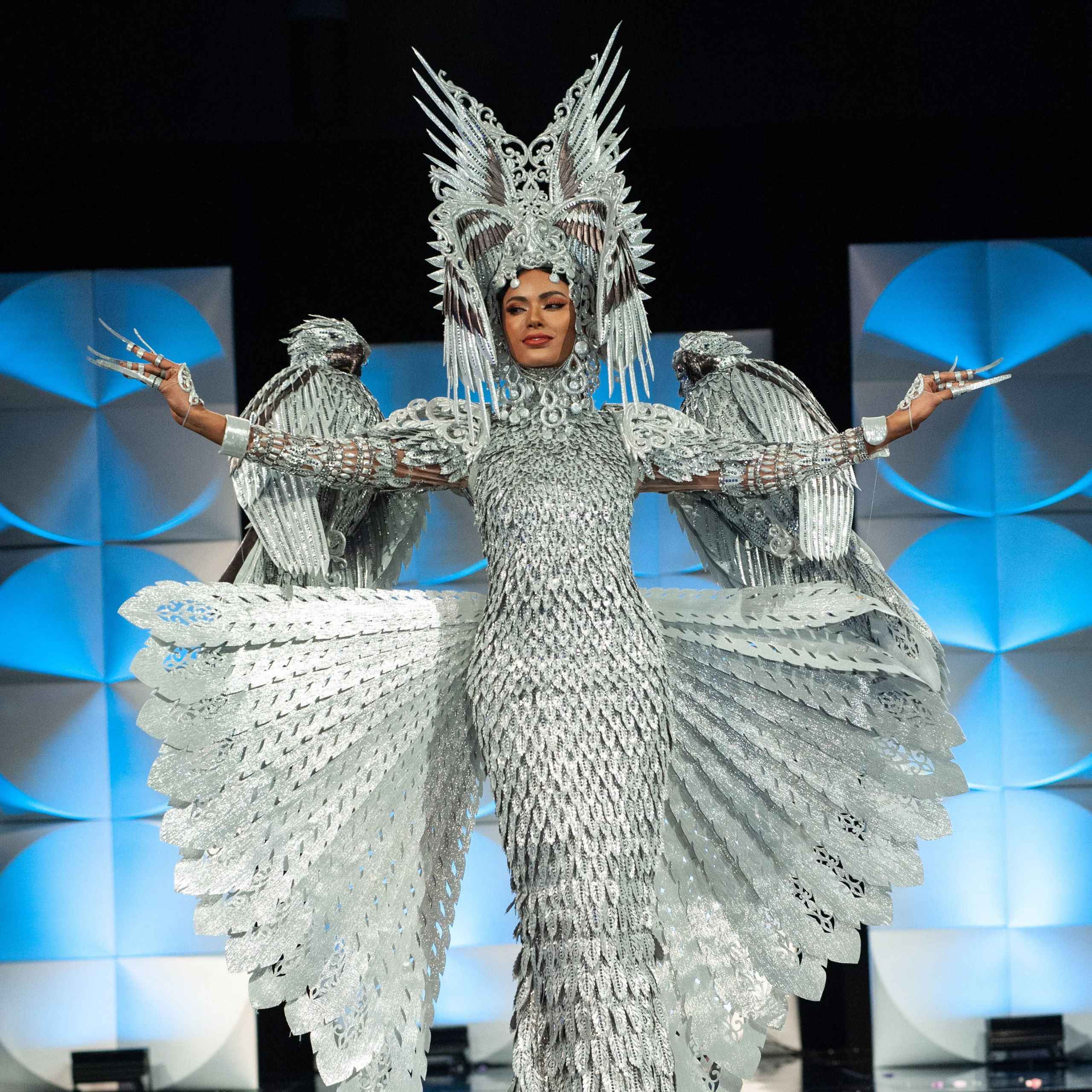Discover a decade of Miss Universe Philippines National Costumes, showcasing Filipino culture and creativity from 2013 to 2022
The National Costume competition is the optimal platform for contestants to proudly showcase their country’s rich culture and artistic talent for Miss Universe. As they strive to make a lasting impact, many participants aim to hit the mark, embodying a source of pride for their nation and its people. In the grandeur of the Miss Universe pageant, it becomes a poignant question: If we don’t stand up for our country and culture, who will champion our cause? These are the National Costumes that Miss Universe Philippines titleholders have worn over the last decade.
RELATED: Miss Universe Philippines Evening Gowns From 2013 to 2022
2013: Ariella Arida by Alfredo Barraza
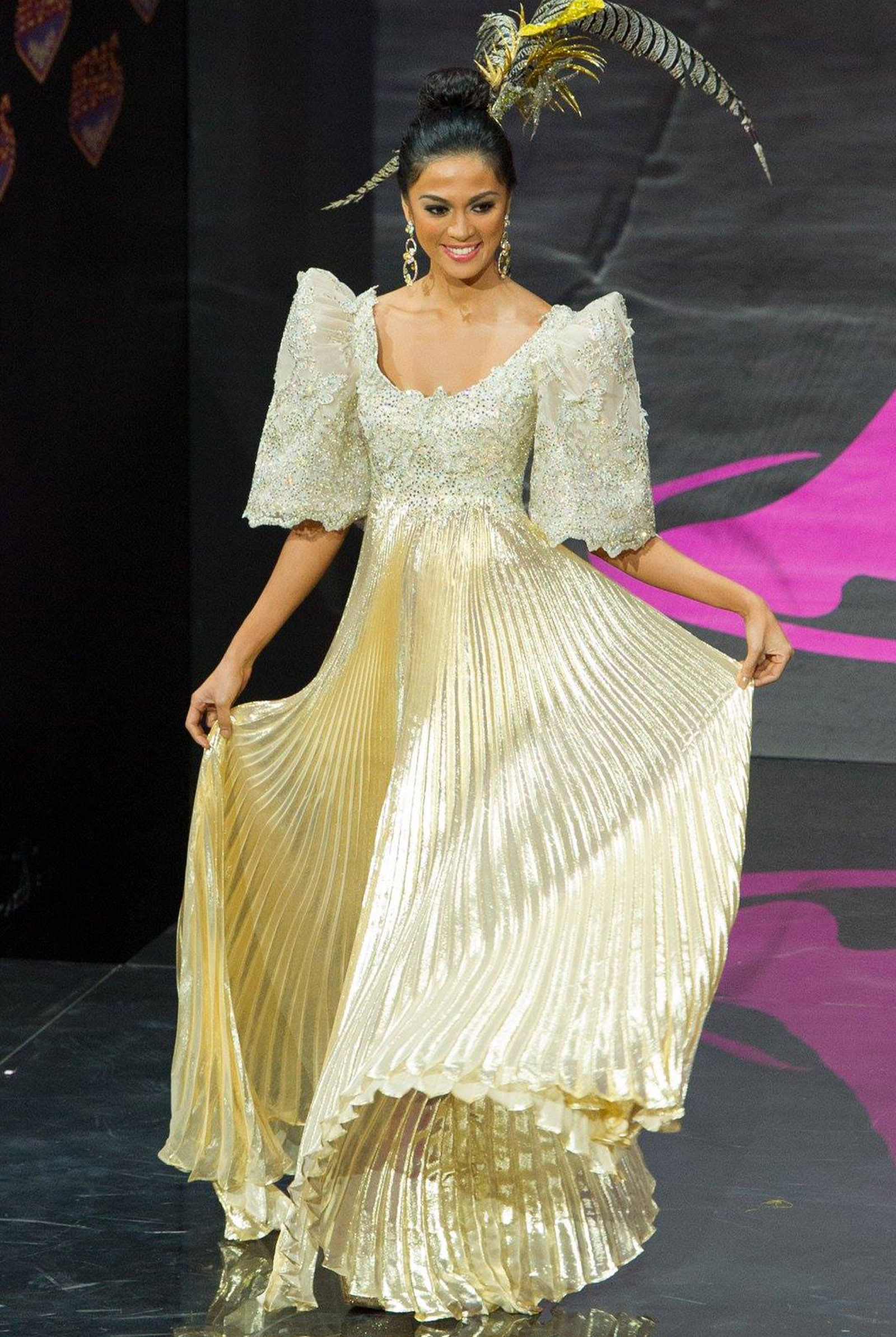
A lively transformation embraced Ariella Arida’s Filipiniana as a dynamic terno unfolded with an electric pleated skirt and a feathered headpiece. Crafted by Alfredo Barazza, this costume entices the imagination with its vivid details.
2014: Mary Jean Lastimosa by Alfredo Barraza
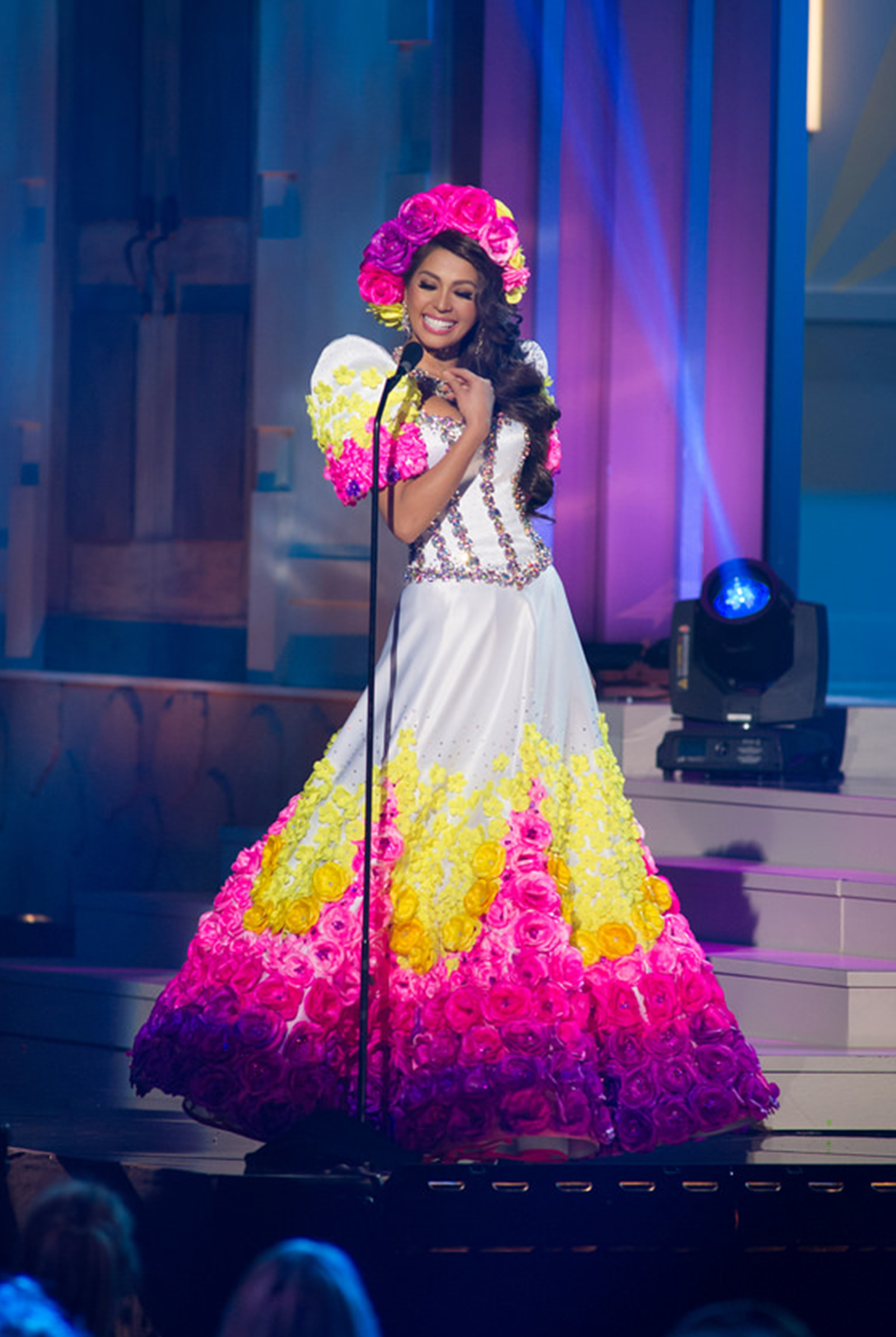
Adorned in a floral ensemble by Alfredo Barazza, Mary Jean Lastimosa drew inspiration from Baguio’s Panagbenga Festival. The costume, however, faced criticism, prompting the Binibining Pilipinas Charities to reevaluate their approach and subsequently open doors once more to Filipino designers. This marked a pivotal moment, with Pia Wurtzbach being the first beneficiary of this shift.
2015: Pia Wurtzbach by Albert Andrada
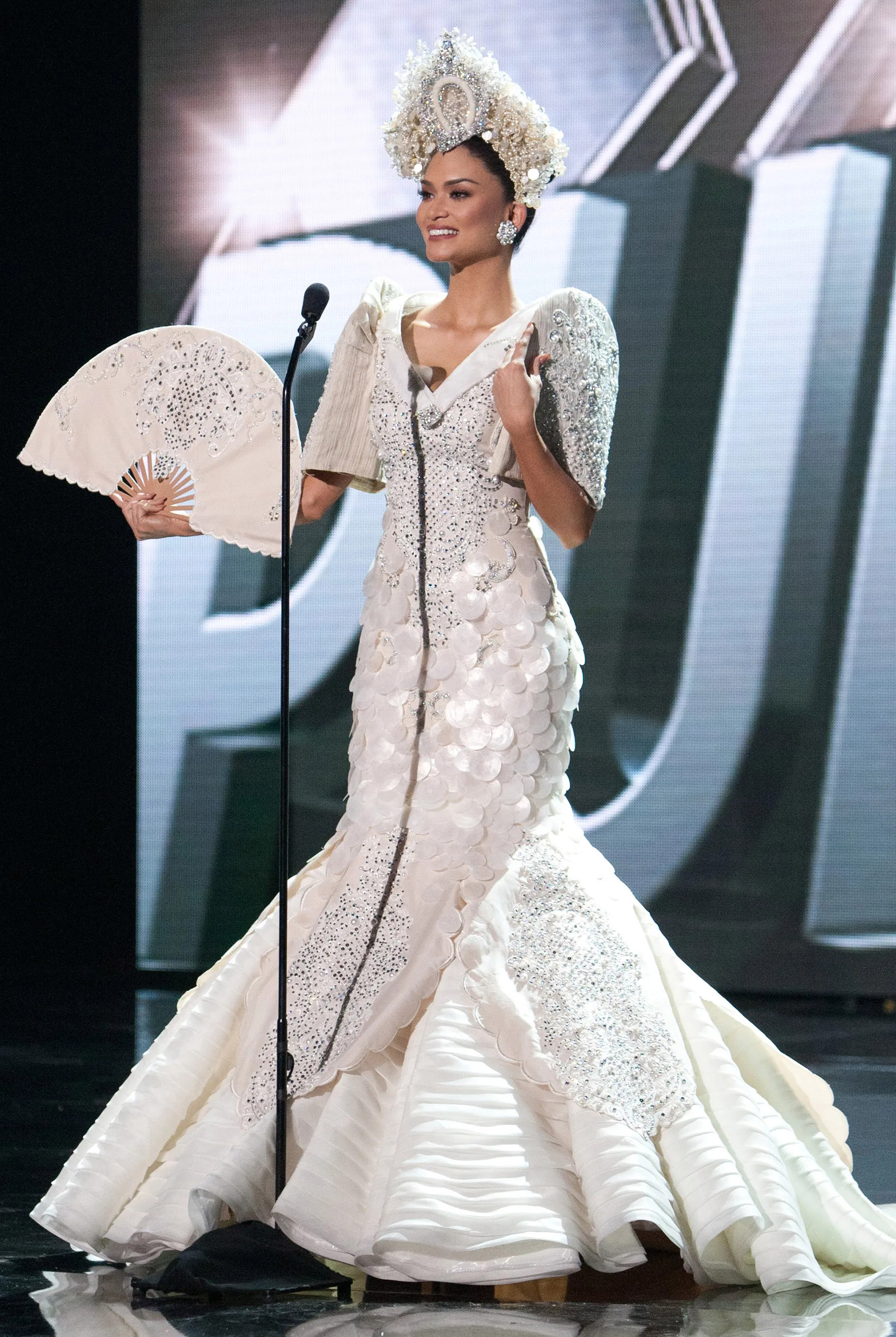
Pia was adorned in a capiz terno crafted by Filipino designer Albert Andrada. This intricately detailed gown was accompanied by a matching fan and headpiece, completing an ensemble that showcased the artistry of Filipino design.
2016: Maxine Medina by Rhett Eala
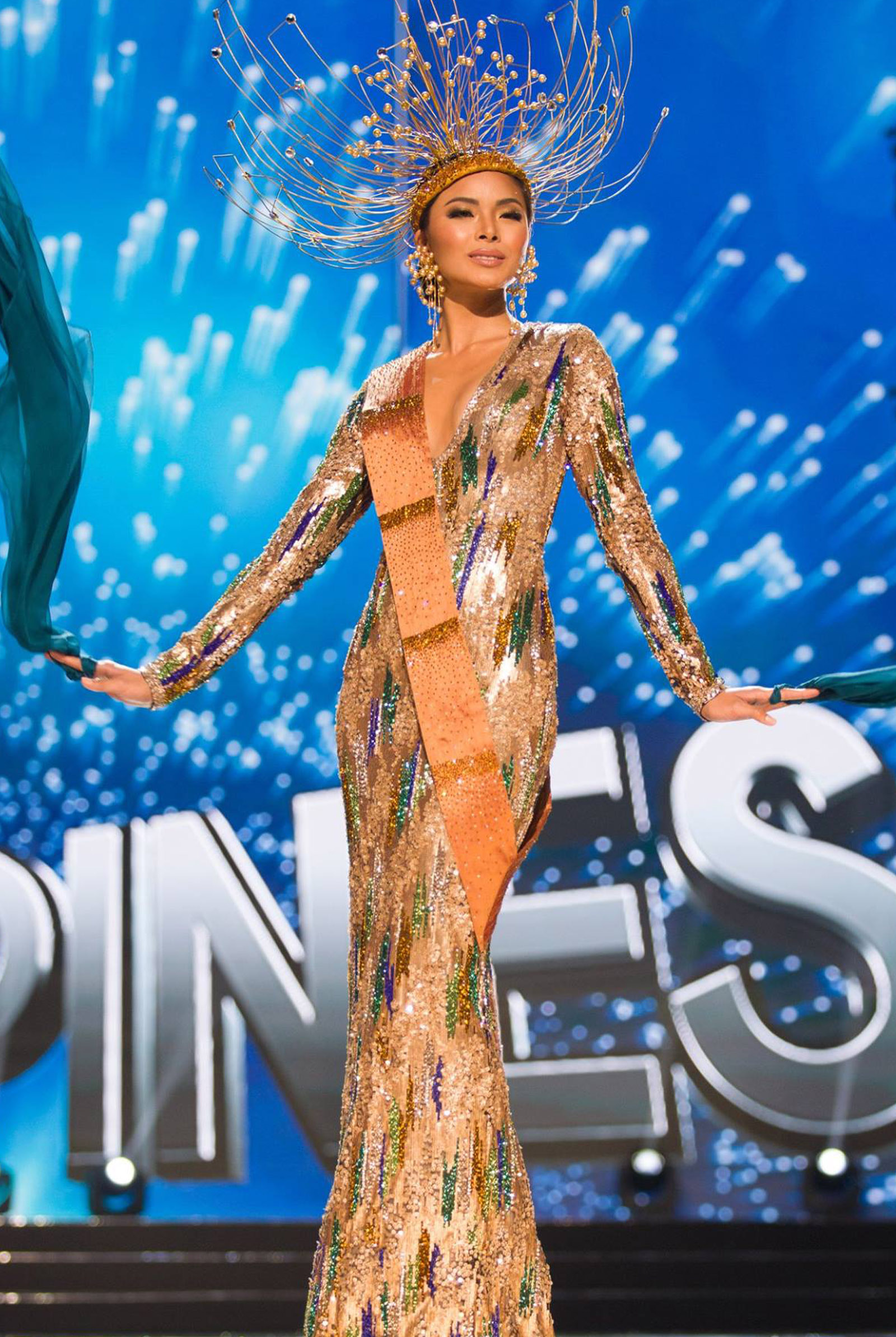
Radiating regality, Maxine Medina captivates in a creation inspired by the vibrant Muslim vinta, the intricate corals, and the lustrous South Sea pearls of Mindanao. This ensemble integrates together cultural elements, transforming her appearance into a majestic representation of Filipino heritage.
2017: Rachel Peters by Val Taguba
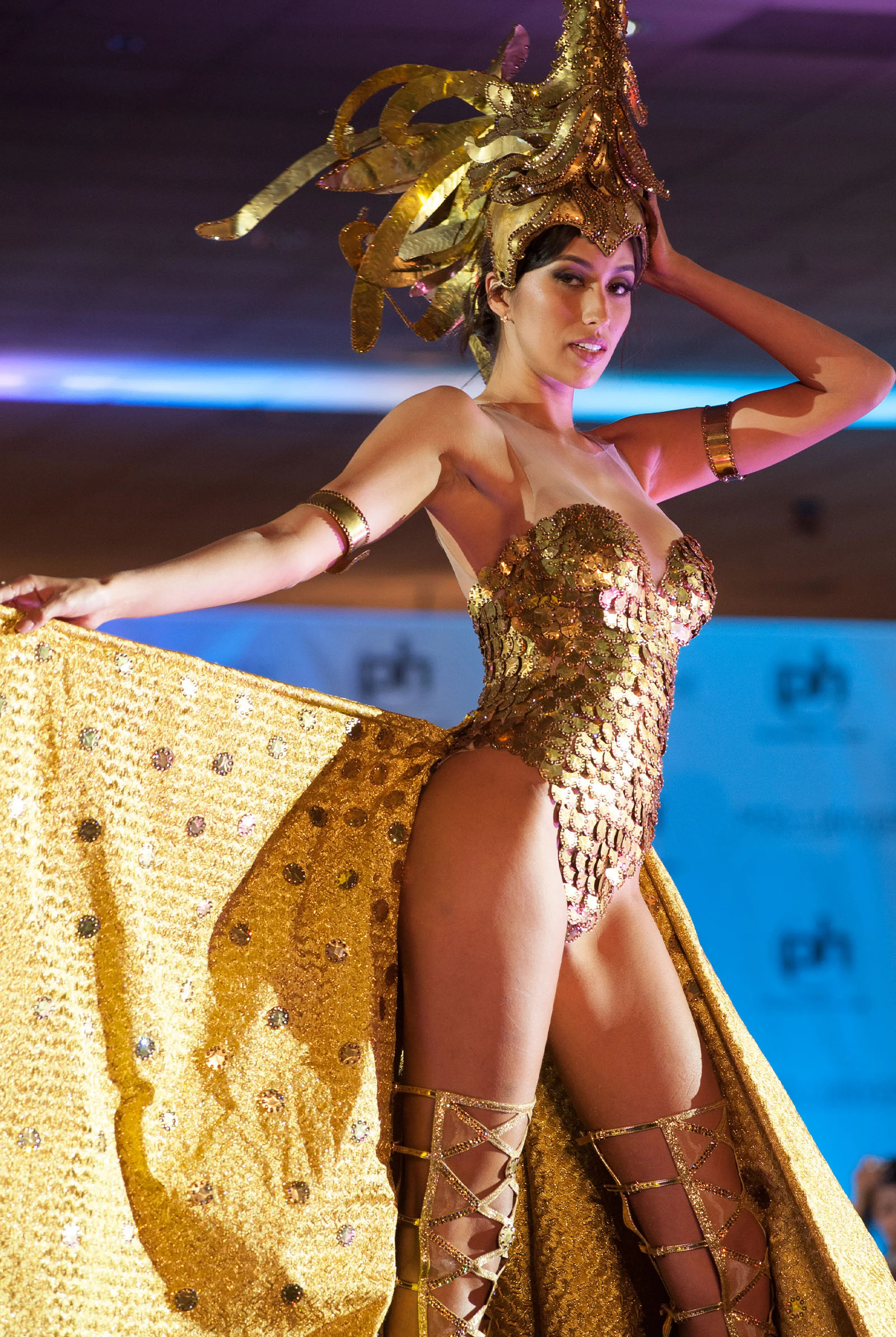
Rachel Peters donned a golden bodysuit paired with a matching headdress, complemented by a flowing train and gladiator boots. Drawing inspiration from the sarimanok and crafted by Val Taguba, her appearance resembled that of an Amazona, poised for battle in representation of her country.
2018: Catriona Gray by Jearson Demavivas
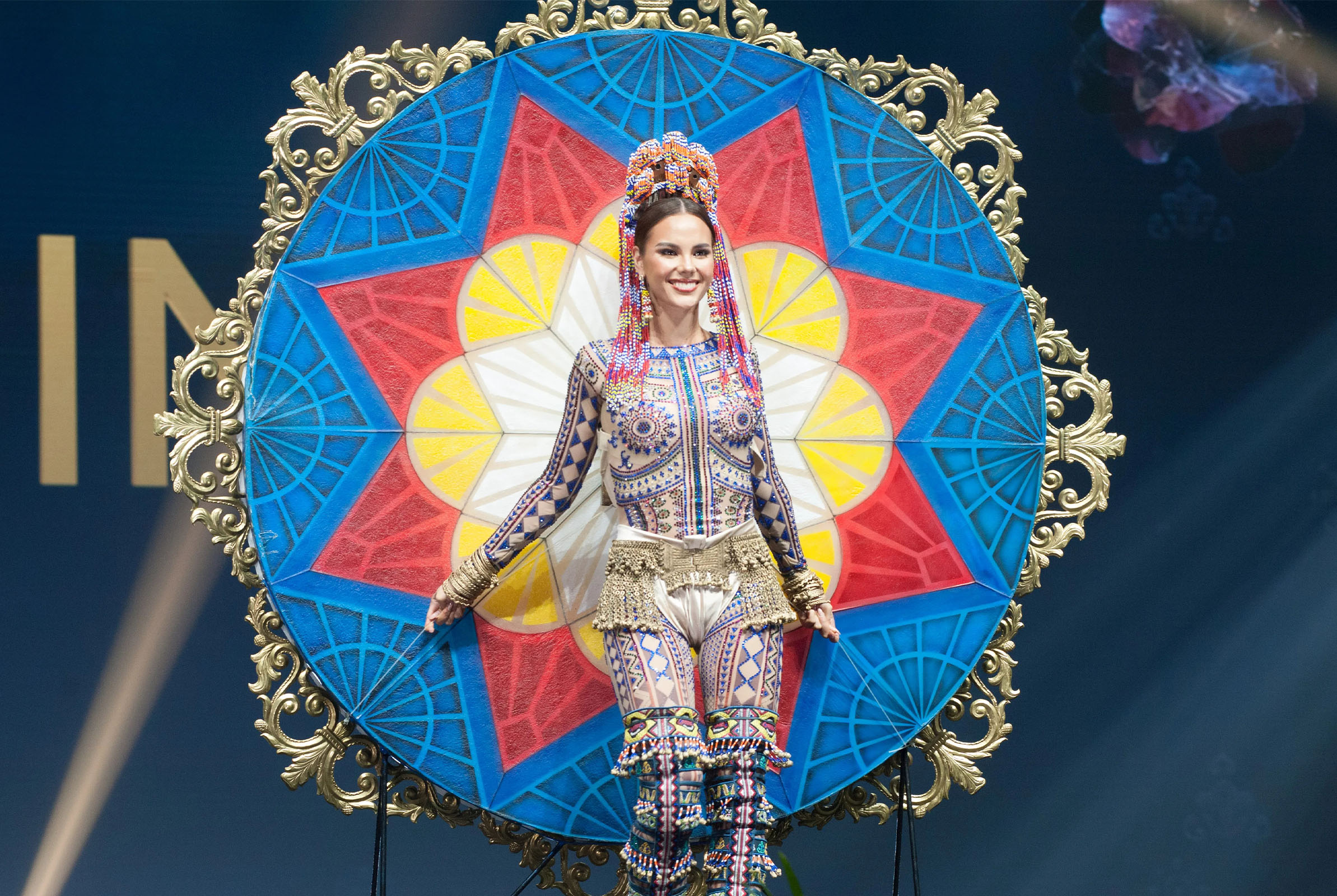
In a showcase of Philippine diversity, Catriona’s ensemble signifies the country’s three island groups—Luzon, Visayas, and Mindanao. Accessories evoke the spirit of Mindanao, while the body suit captures the essence of Visayas, and the lantern takes on the distinctive charm of Luzon.
2019: Gazini Ganados by Cary Santiago
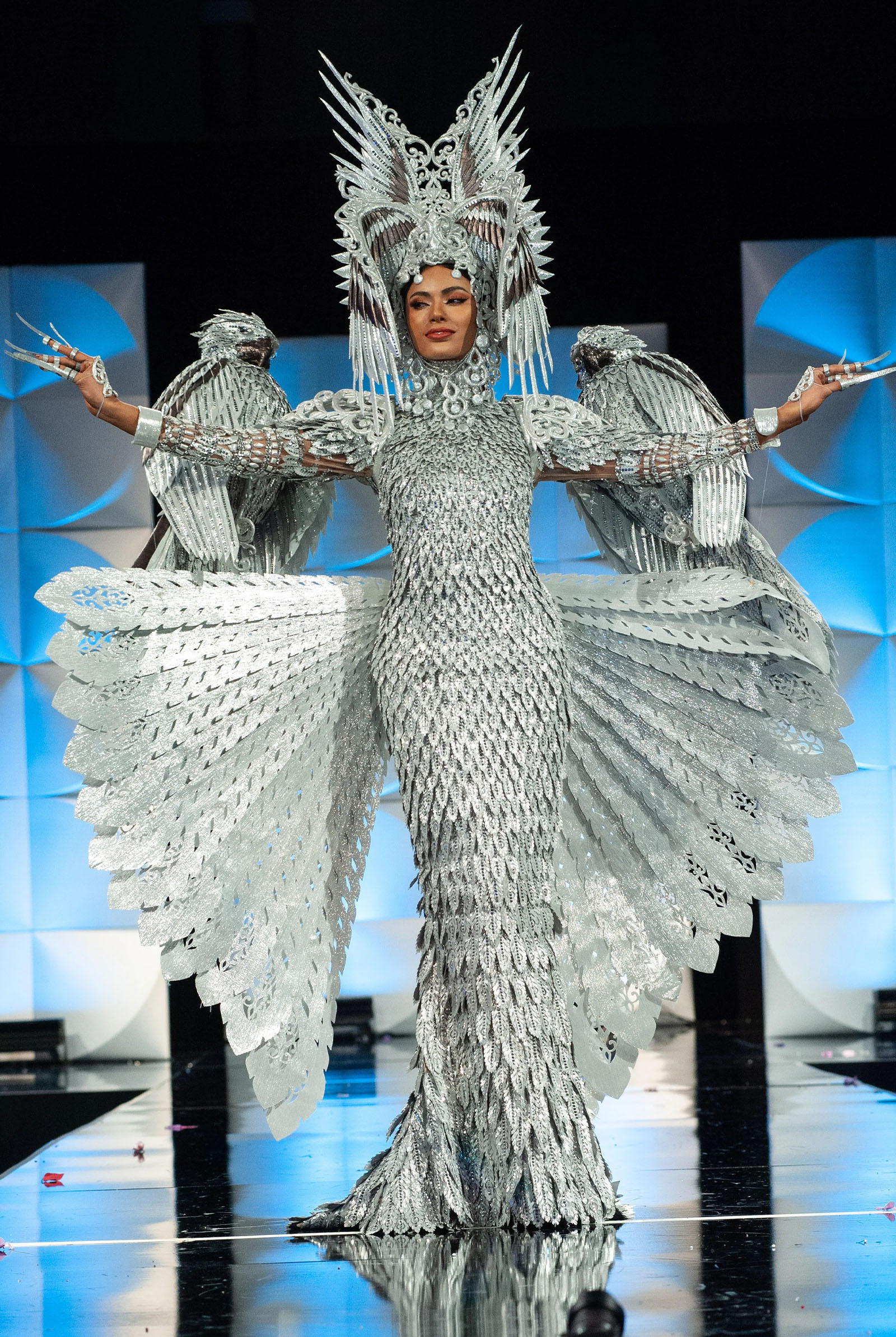
Gazini Ganados channels the essence of the Philippine Eagle, as envisioned by designer Cary Santiago, who drew inspiration from our national bird. The design, though not ostentatious, boasts meticulous hand-stitched details, all crafted from a singular fabric adorned with Santiago’s distinctive laser-cut patterns. It’s here she won Best National Costume.
2020: Rabiya Mateo by Rocky Gathercole
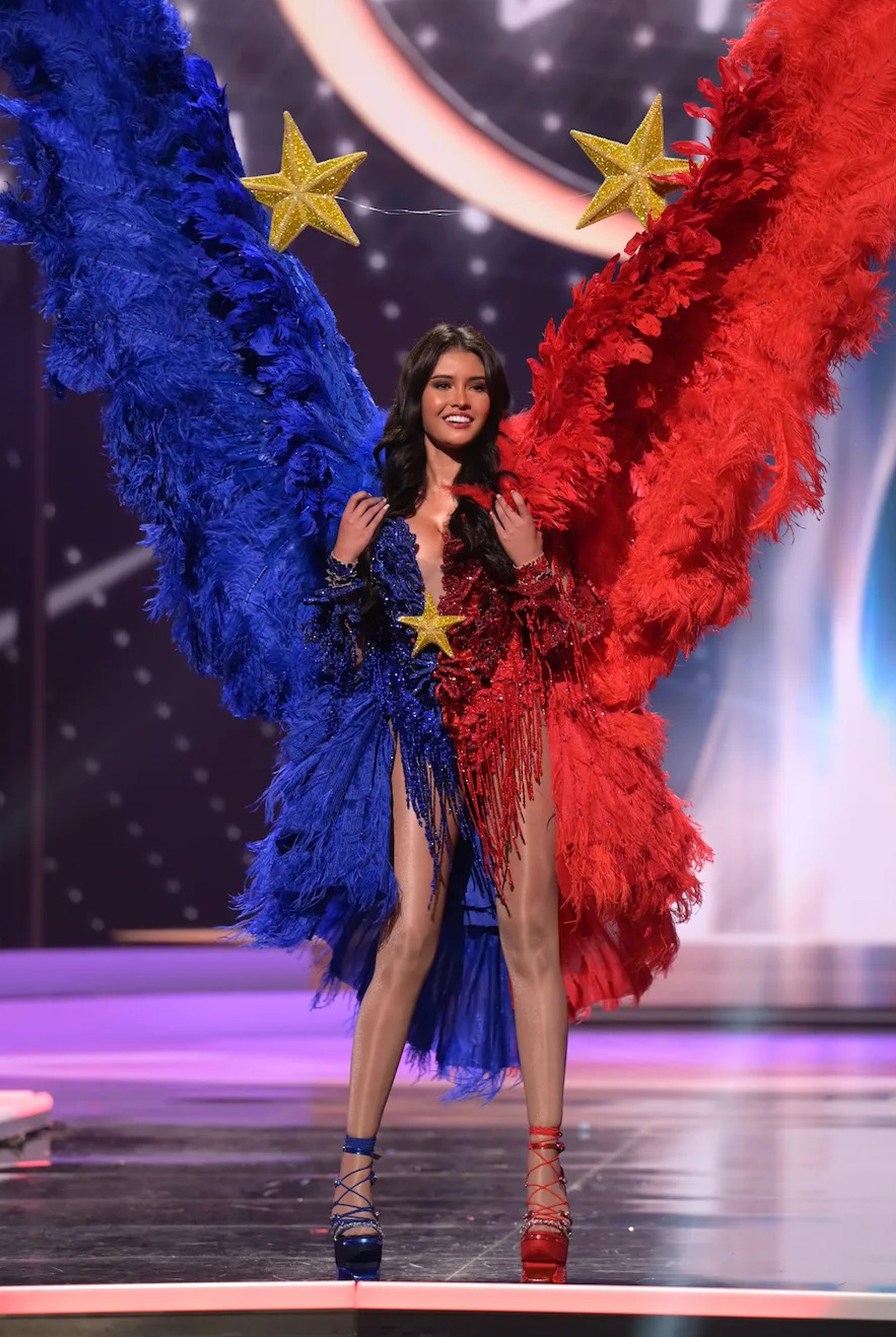
Her Philippine flag costume is defined by a blue wing symbolizing royalty, and red representing courage and strength. The costume is adorned with three stars, mirroring the three islands, each signifying “hope and freedom to choose whoever you want to be.”
2021: Beatrice Luigi Gomez by Francis Libiran
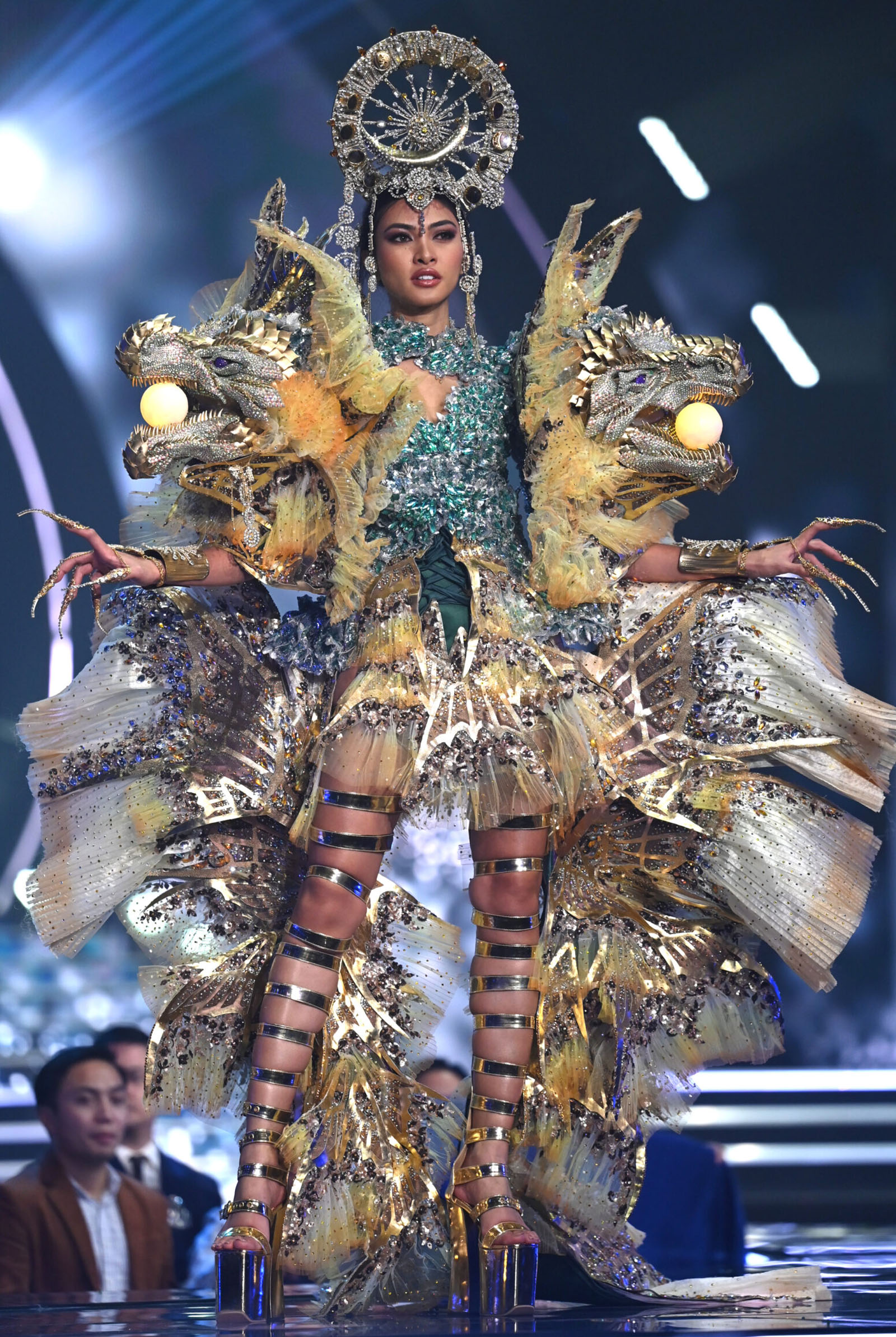
Gomez embraces mythology in a design collaboration with Cebu-based designer Axel Que. The designer draws inspiration from the Bakunawa, a serpent-like dragon in Philippine mythology. However, he gives it a distinctive touch, presenting the creature in a new form—the resplendent Golden Lunar Dragon.
2022: Celeste Cortesi by Oliver Tolentino
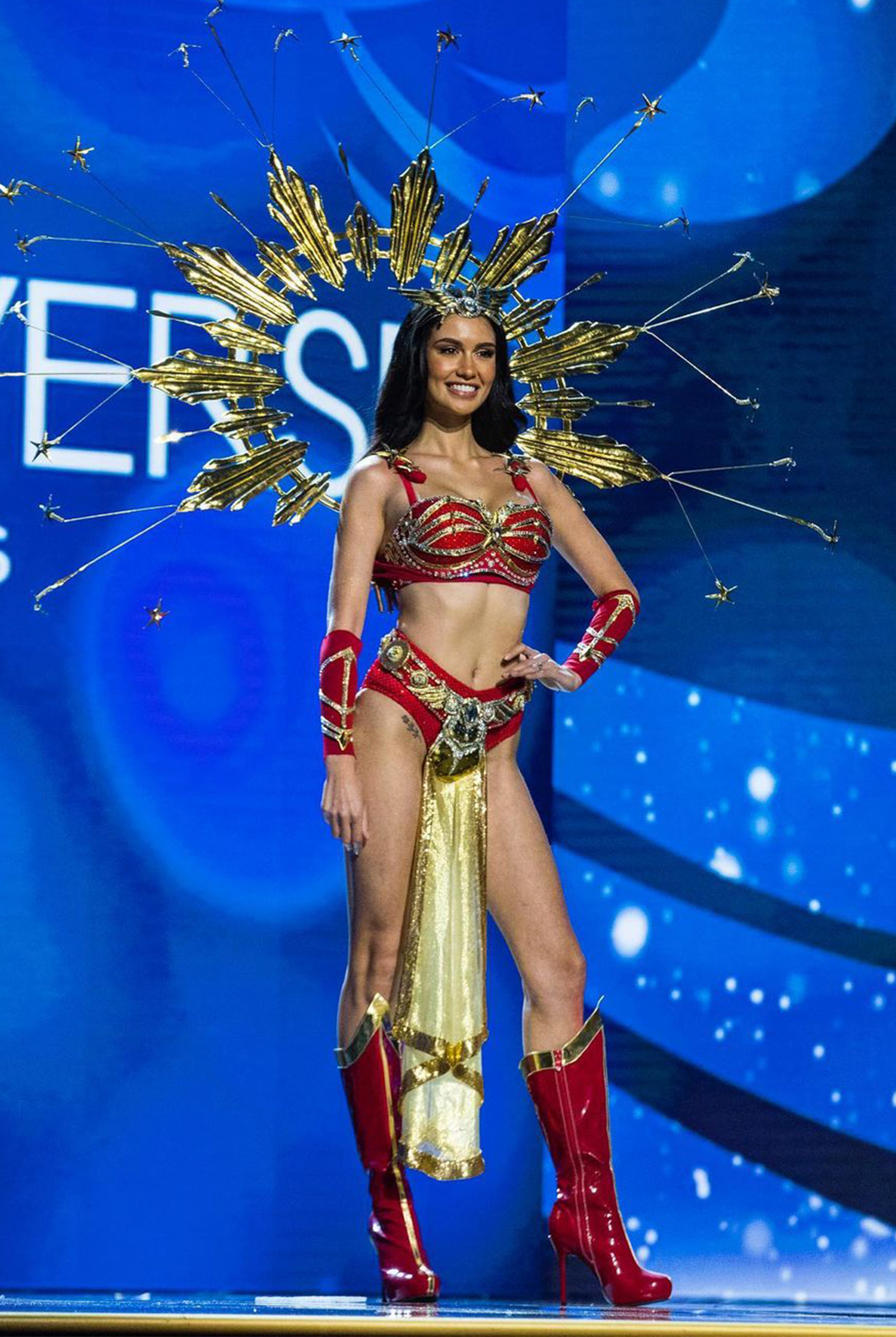
Cortesi steps onto the world stage embodying the iconic superhero Darna, championing a cultural symbol synonymous with kindness, empathy, and empowerment.
In the retrospective lens of Miss Universe Philippines National Costumes from 2013 to 2022, these ensembles encapsulate diverse Filipino culture. They symbolize national identity and creative expression, with each one contributing to the evolving Filipino representation on the global stage. As these distinct attires continue to leave their mark, they reflect the ongoing story of Philippine heritage, adding a colorful chapter to the Miss Universe legacy.
Photos: MISS UNIVERSE
